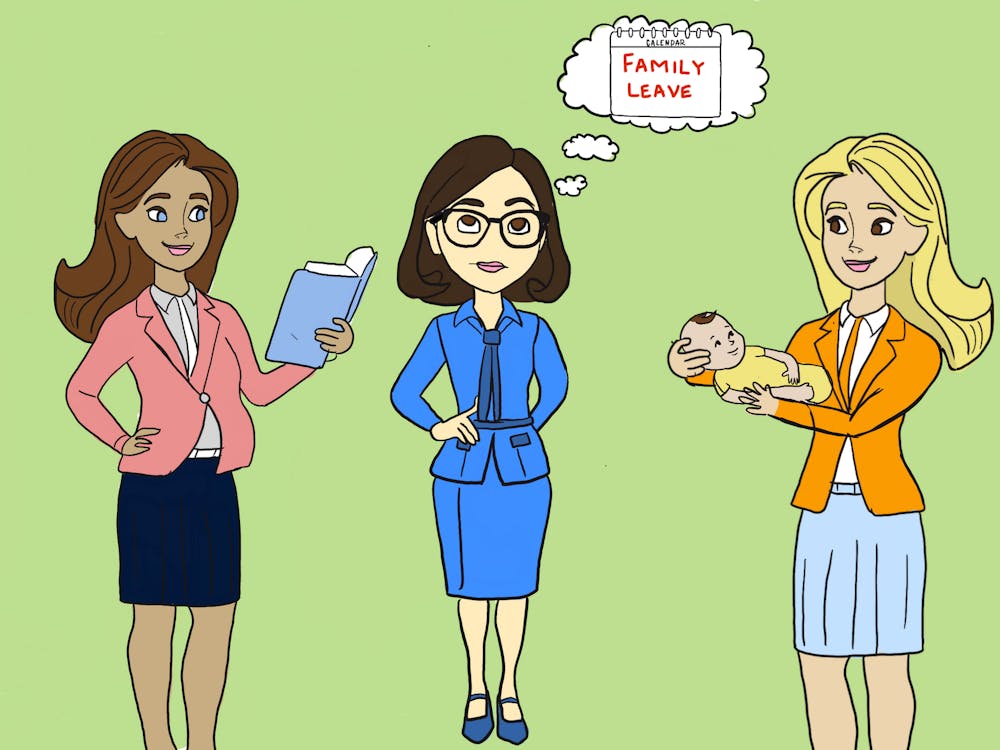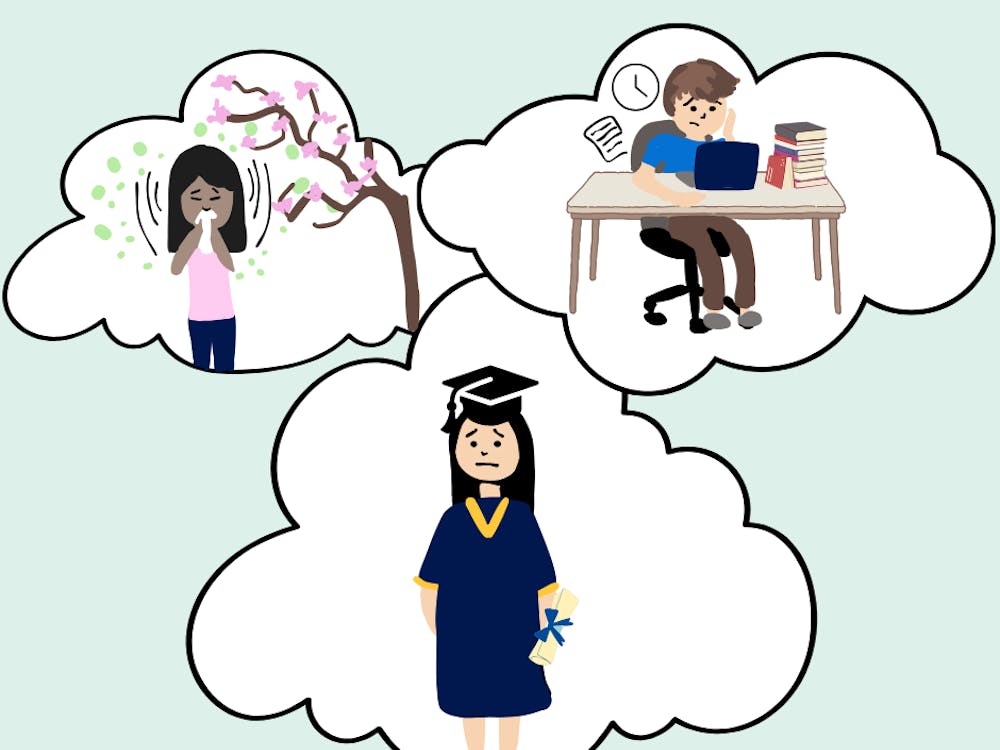Q: "How do you like your eggs?"
A: "Germany."
Q: "Where do you live?"
A: "I like it."
After this kind of crazy, nonsense jibber jabber associated with unavoidable silly icebreakers, seven first-year students accompanied by three upper-class facilitators began to slowly work their way deeper into conversation while sitting in a luxury suite at Scott Stadium on a chilly Tuesday evening.
Q: "Why did you choose to come to U.Va.?"
A: "I love it here and wanted to follow in my brother's footsteps."
Q: "What is your favorite thing about first semester?"
A: "Snowball fights on the Lawn!"
These students comprised one small group section of first year seminar, a unique program offered second semester to randomly-chosen first year students. The seminars are for students interested in getting to know more of their peers, while simultaneously gaining information about the encompassing aspects of University life.
Begun more than 20 years ago by Sybil Todd, a former associate dean in the Office of the Dean of Students, the program's goal is to help first year students with "their feet on the ground" after first semester to make the most of their remaining time at the University.
According to Dean Sisson, senior associate dean of students, other colleges and universities around the country also offer programs like FYS for their students. The second semester approach, however, is a unique feature of the program at U.Va.
The seminars have proven successful over time and, although the topics change somewhat each year according to the shifting atmosphere of Grounds, the foundation still rests upon the program's initial principles and goals.
Students involved attend the seminar two hours a week for five weeks. Seminars are held both Monday and Tuesday evenings, with each individual small group section containing approximately ten students. Although no credit is received for the class, past participants claim that the benefits outweigh the time commitment.
"It is a great way to meet new people," second-year College student Abra Tabak, former participant and current facilitator said.
The program gives students the opportunity to take two hours a week to relax, hang out in luxurious settings, eat free food and talk about personal experiences and feelings concerning U.Va. while hopefully learning and gaining useful knowledge from others.
"The biggest thing that I got out of it was meeting people I wouldn't necessarily have met, and hearing perspectives that I am pretty sure I might not have heard," fourth-year Commerce student Fred Murai, a former participant and current facilitator said.
Many students end up getting involved in the program simply because they receive the invitation letter.
"I basically decided to do FYS because I had gotten the letter in my mailbox and thought I'd check it out. I went to the information session and all the facilitators seemed really enthusiastic," said first-year College student Lina Saliba, a current participant in the program.
One of the most distinctive aspects of the program is the fact that all the small discussion groups are facilitated by upperclassmen. Most participants enjoy FYS a great deal and see its value, leading them to take a facilitator position in following years. Murai said he believed in the objectives of the program andhas been a facilitator ever since his first year, helping others experience what he did when he was new to the University.
An application process for facilitators takes place in the latter part of first semester, and third and fourth year students who are interested in facilitating do not have to be previous participants in order to apply. Eventually, facilitators are broken down into teams in which they plan their group's programs and discussions according to their own interests.
Each week the program has a general topic that is further elaborated upon and explored depending on the participating students' interests.
The first week serves as an introduction period, allowing everyone to get to know each other and feel comfortable sharing thoughts and feelings. General topics, such as why one chose to attend college, why U.Va. was the final decision, the rush process, roommate situations and best and worst memories from first semester are shared. Overall, it's simply a fun night of getting to know a new group of one's peers.
Upon returning for the second seminar, the topics get more intense, including accountability, stereotyping, faculty relations and culminating with a panel of fourth-year students, during which participants can "pick their brains" about anything and everything.
Although the list of topics can sound less than thrilling, topics are presented in unexpected ways that allow students to see the impact many of the issues have around Grounds.
For example, on the stereotyping day, three random University students sit before each small group. The first-years stereotype them to their faces, saying exactly what they would believe these people to be like if they saw them around Grounds. Then the stereotyped students get to talk and reveal their true personalities. According to the facilitators, in the end it's interesting to see just how misleading judgments can be.
Activities of this type keep the weekly meetings interesting and veer discussions away from the typical spiel that all first years hear on these issues.
During another seminar session, faculty members and deans will be available in an informal setting for students to ask them any burning questions regarding credits, majors, programs at U.Va. or even just their interests in order to get to know a member of the faculty on a more personal level.
"I'm looking forward to the discussions about how to get to know professors better, and in general, learning about the Charlottesville community and University," Salina said.
The program seeks to prepare students to take on the vast range of opportunities U.Va. provides.
"I hadn't been too involved first semester and thought that [FYS] would be a perfect start to this semester," Saliba said, referring to personal goals she would like to attain after the program.
Although the topics are broad, in-depth conversations are common. Despite the program's short length, friendships emerge and strengthen.
While one sits, looking out over the stadium, listening to their peers speak, it becomes evident that there is much more to U.Va. than classes and Scott Stadium on Saturday afternoons. There are unique speakers, immense resources, extensive activities, wonderful ideas and conflicting student opinions.
Through first year seminar, students take a step, open the door and work with other students to reveal their personal feelings about what the University is, can be and will be to them in the coming years.






